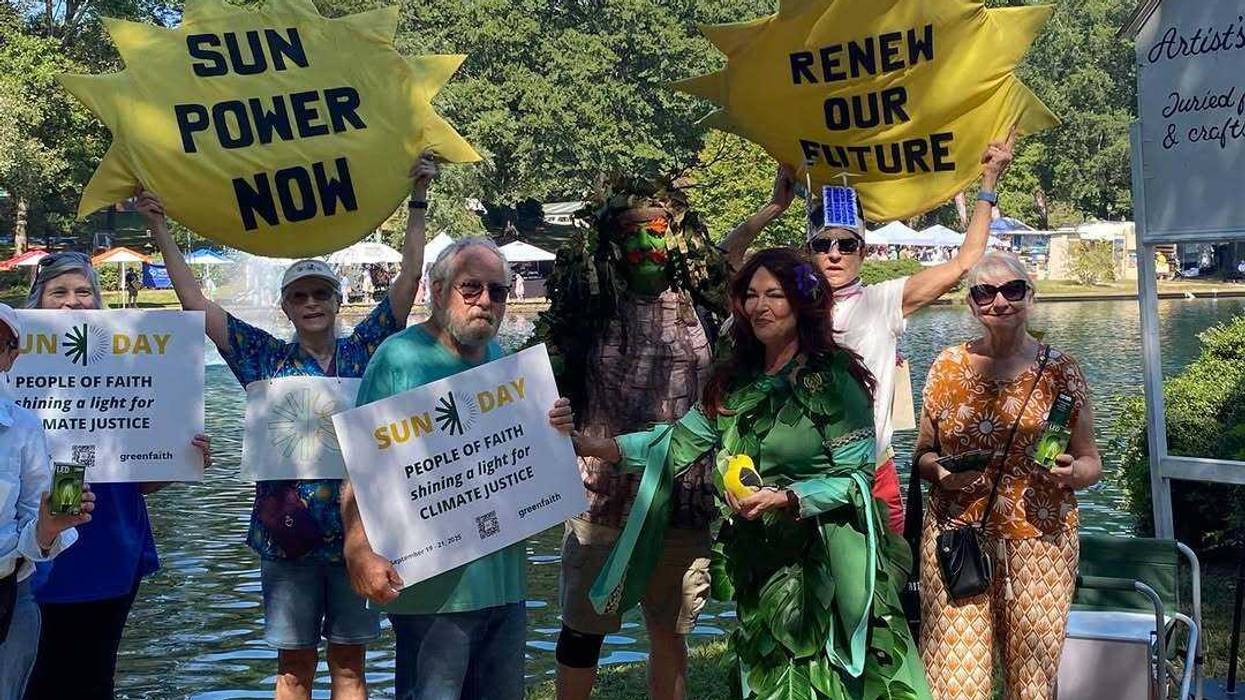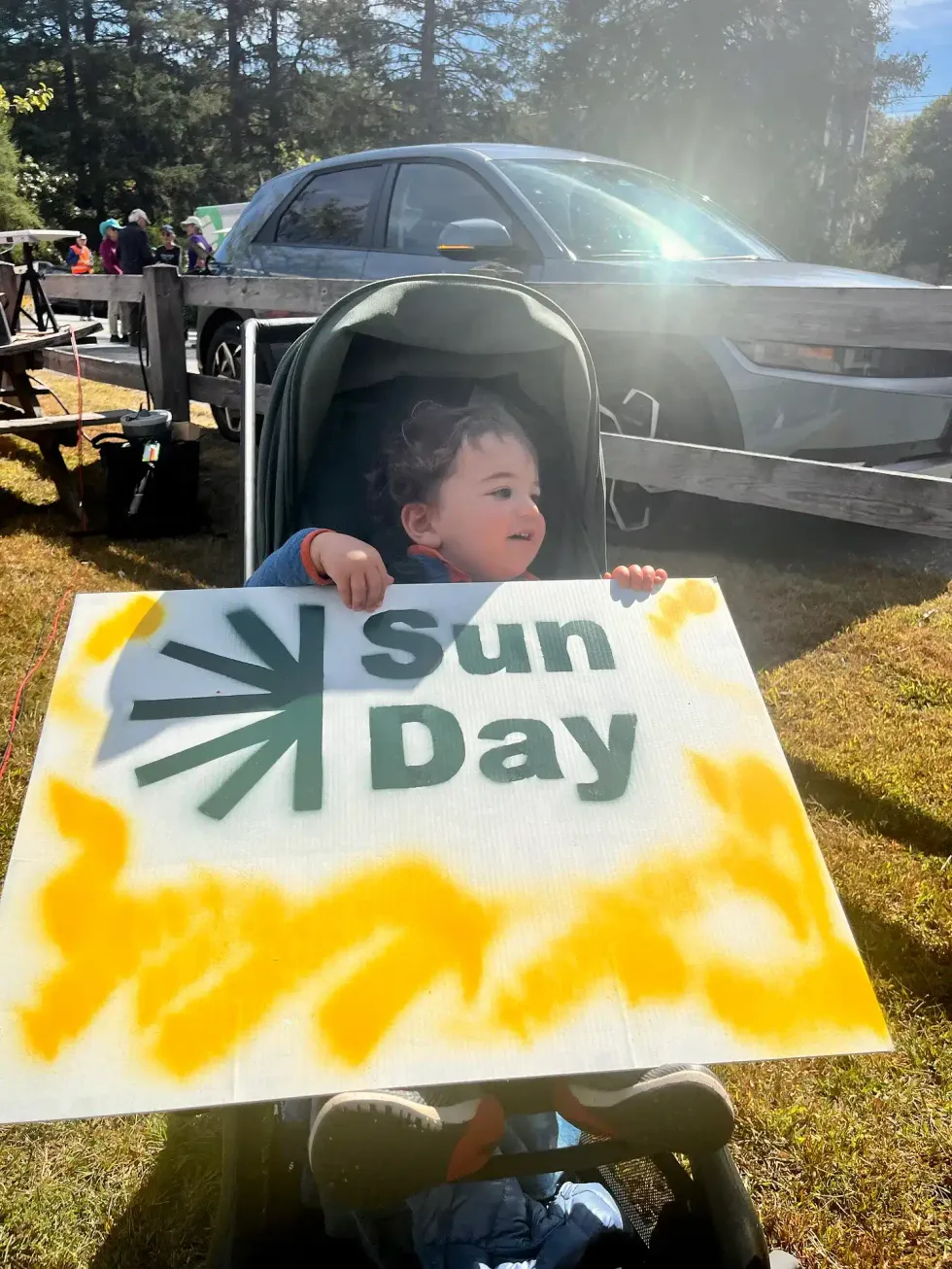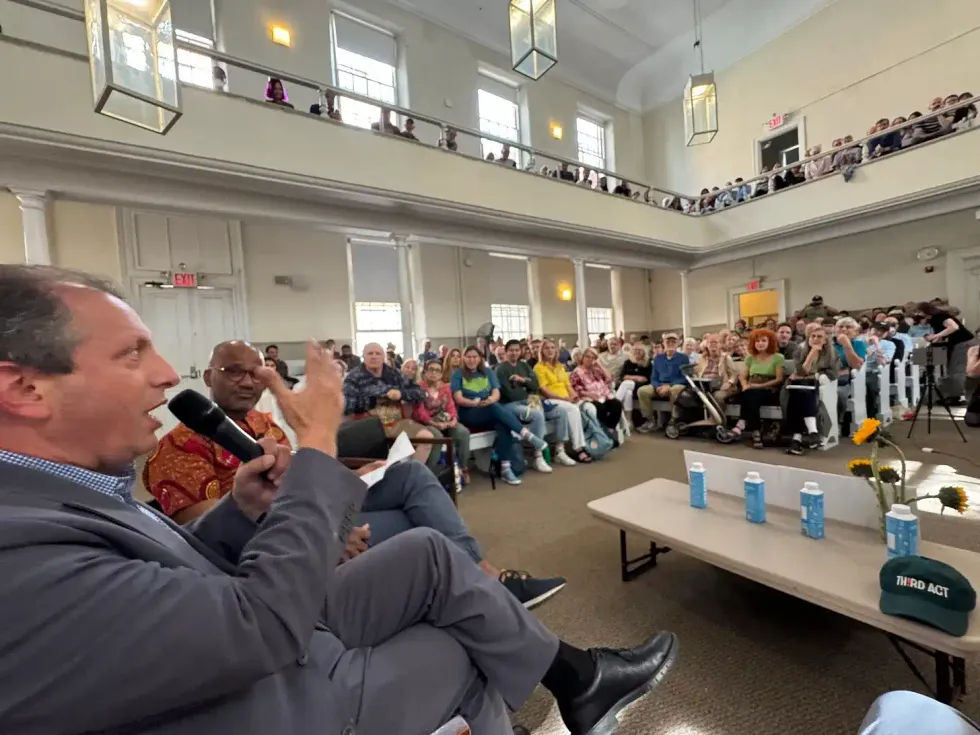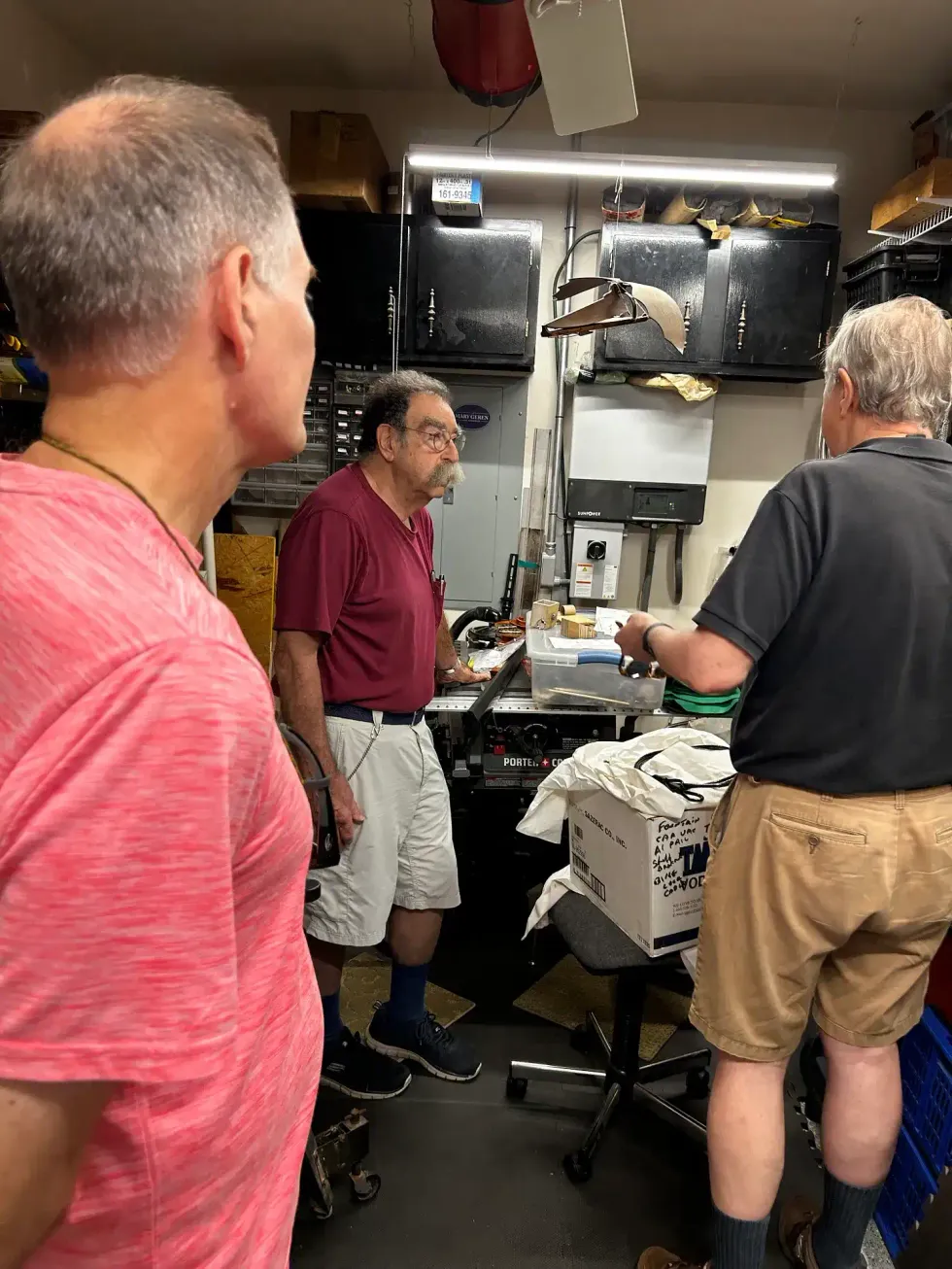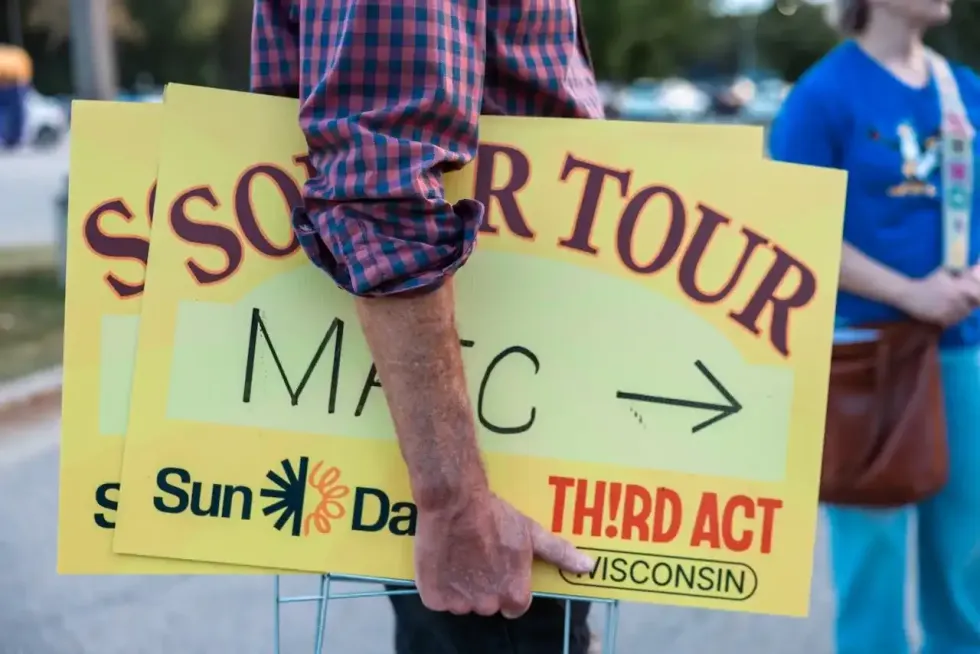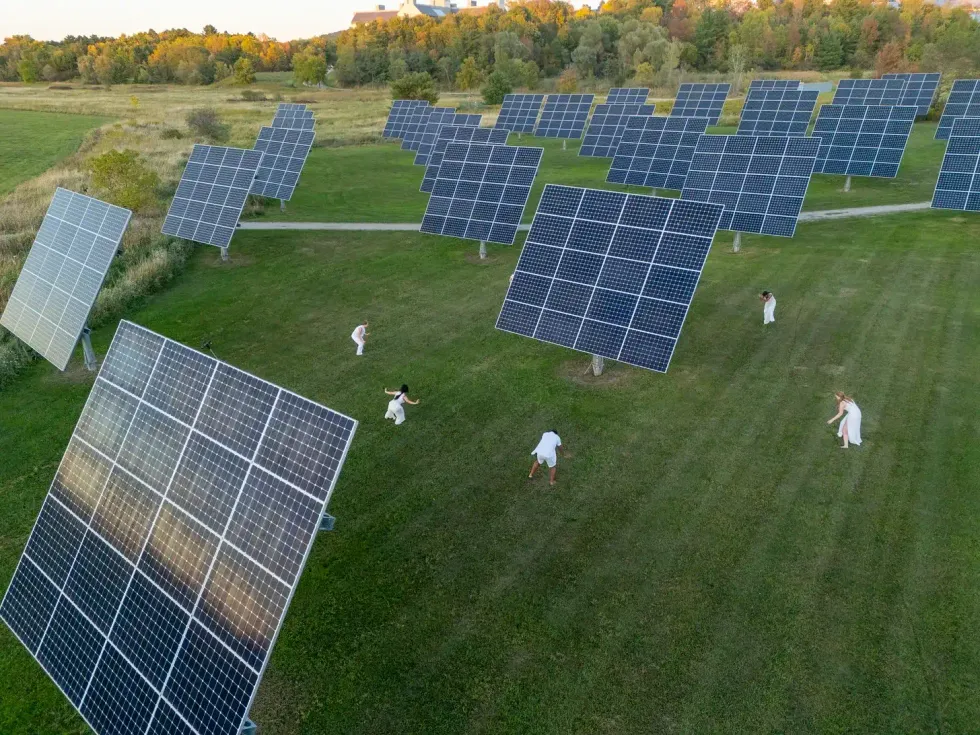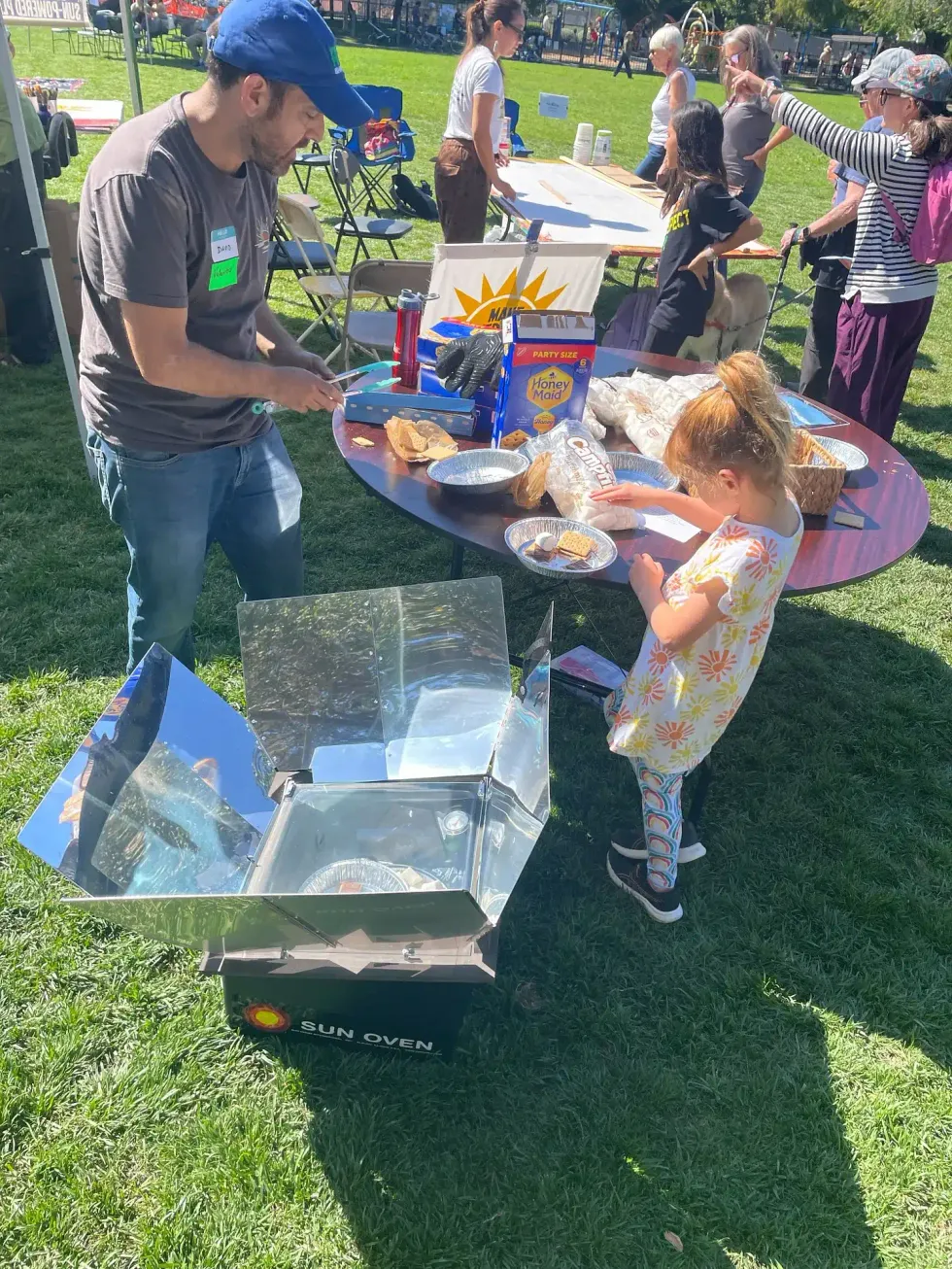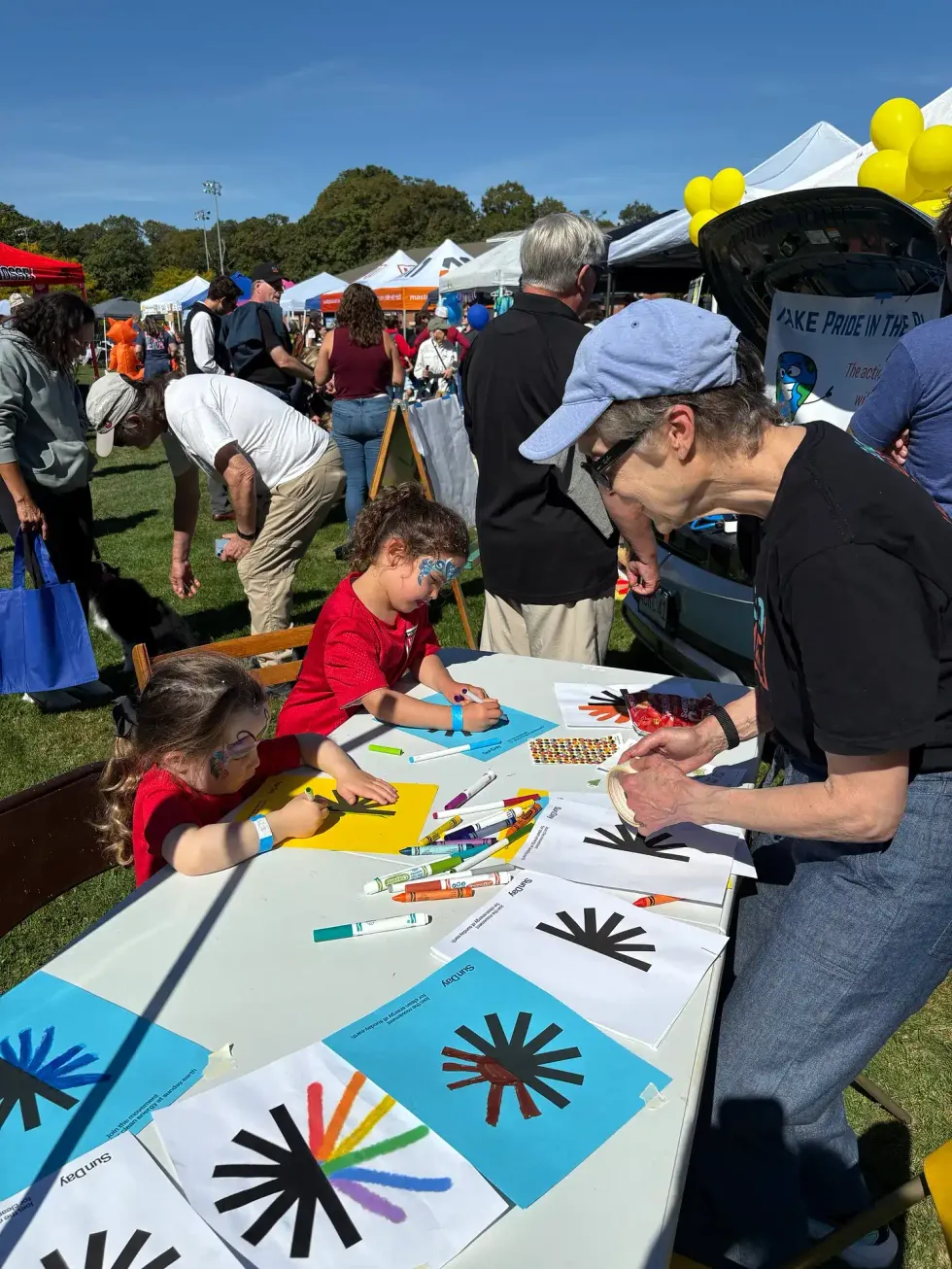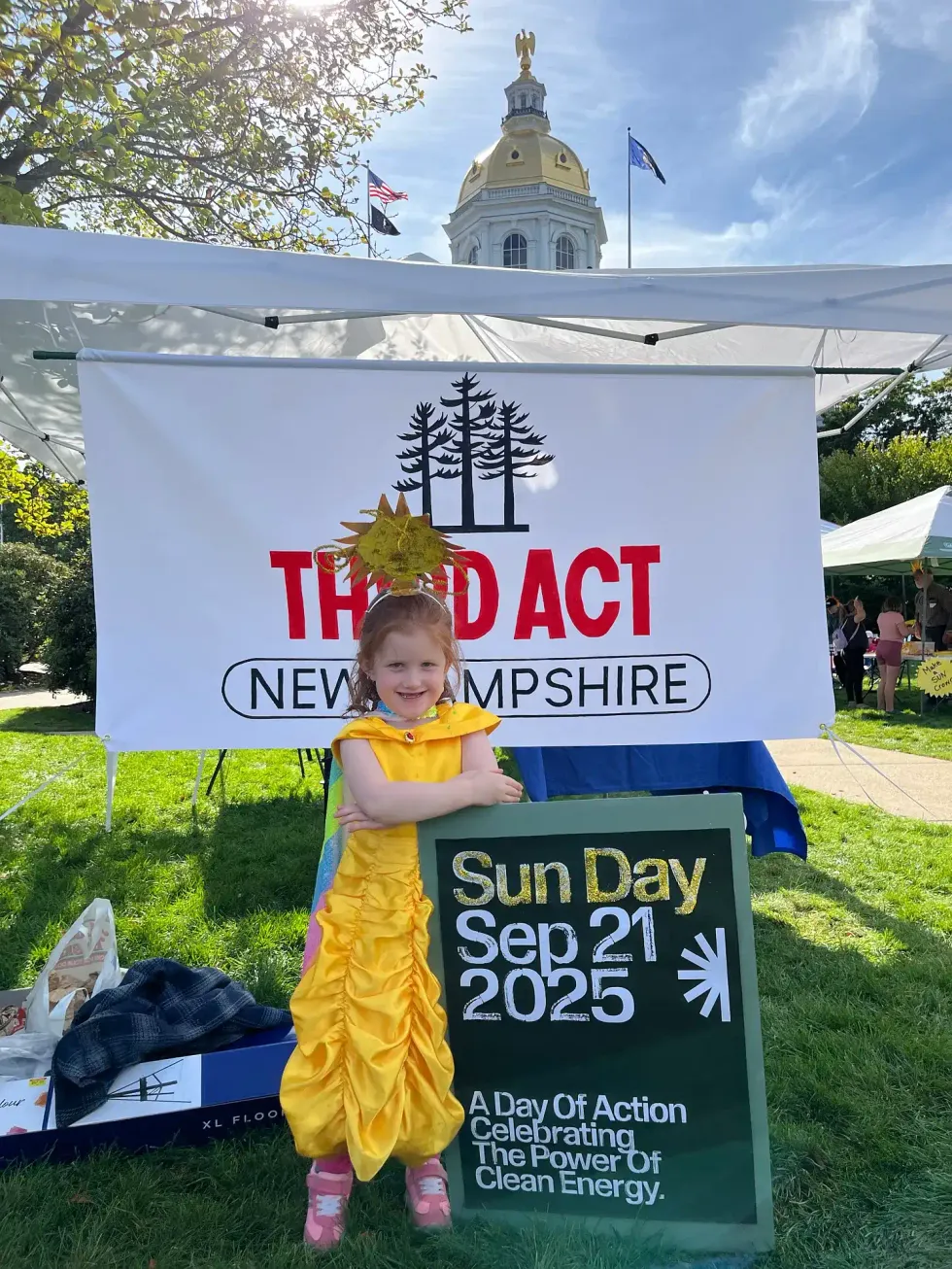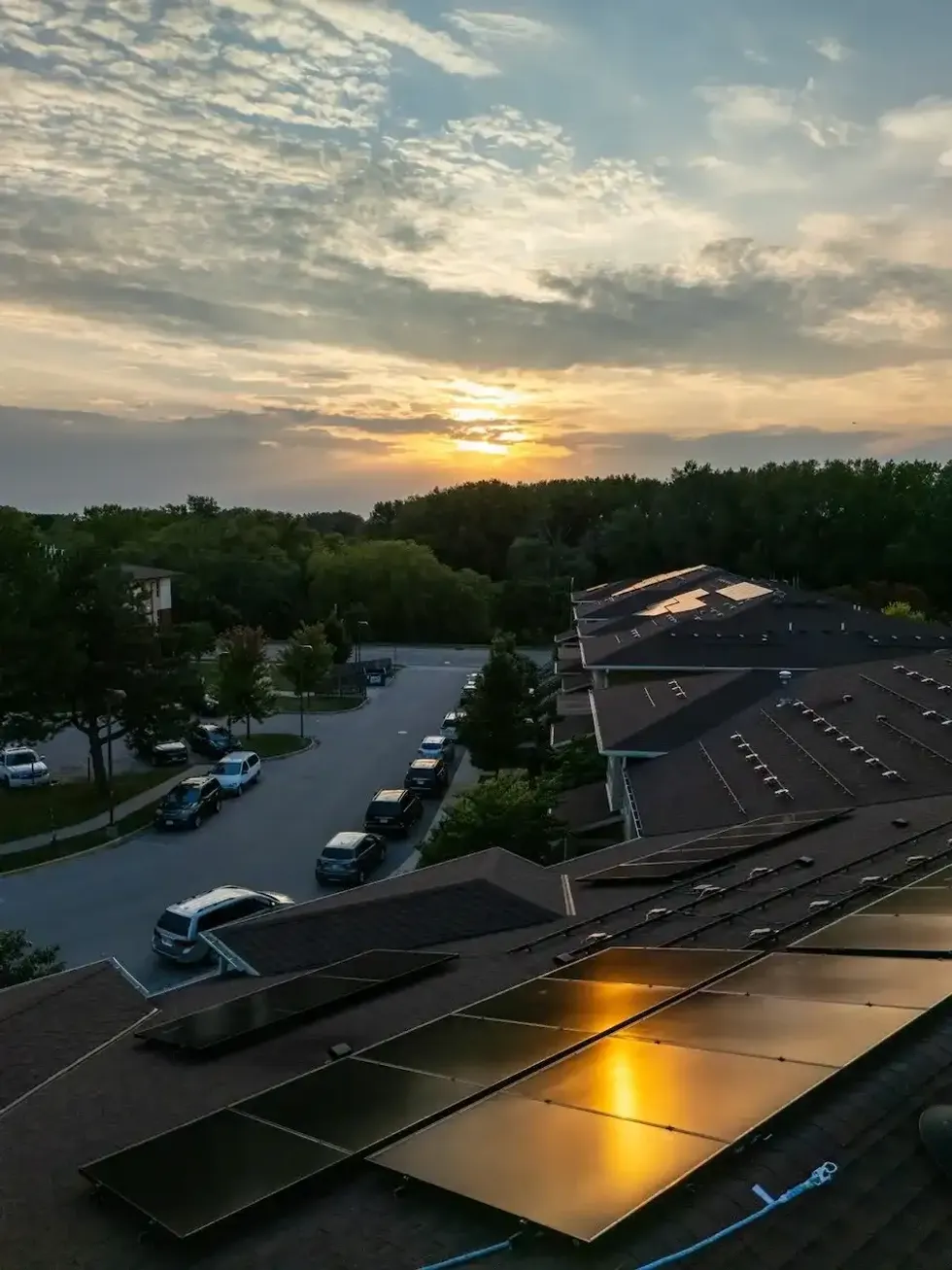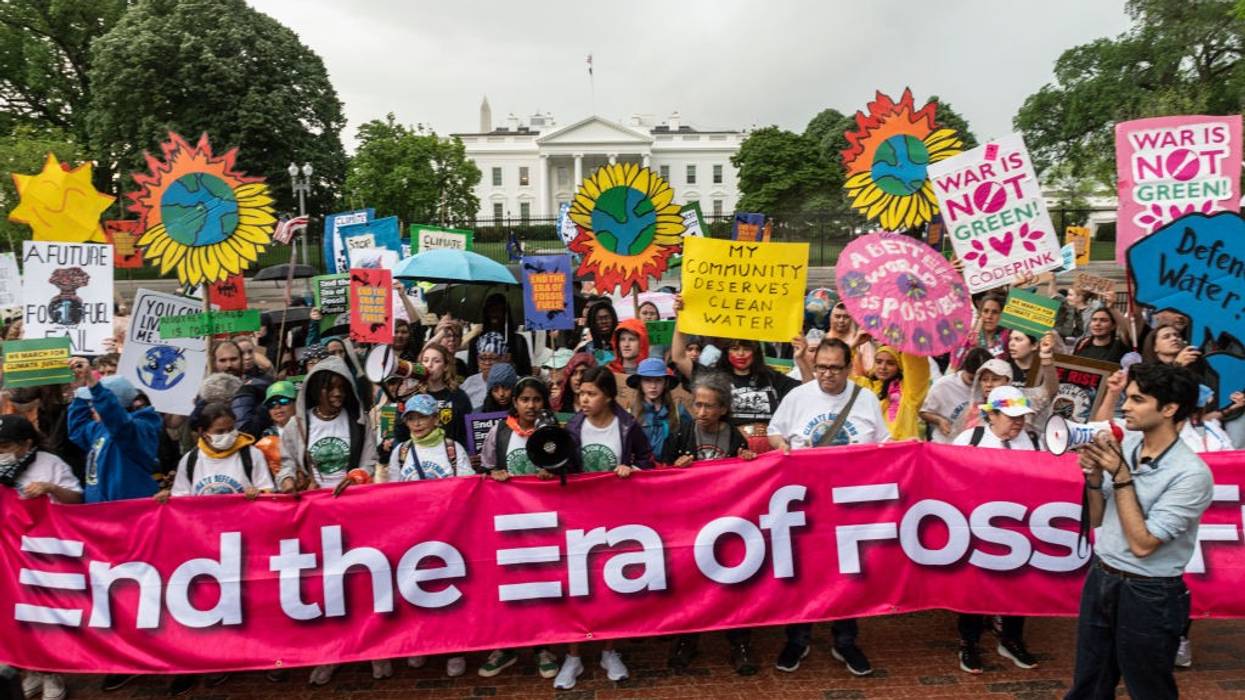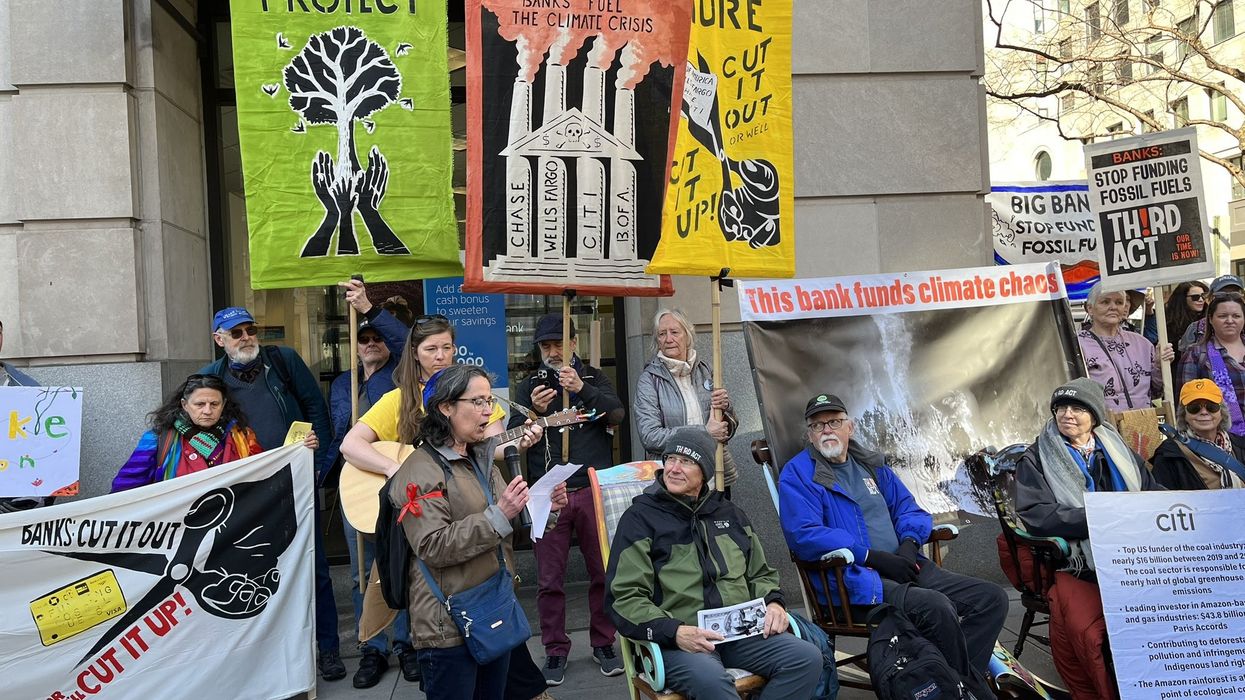To find out what it means to pull all the pieces together, we interviewed three members of the Just Economy Institute who are doing it: Windwood; Tzeporah Berman, international program director at Stand.earth; and Stephone Coward, economic justice director at the Hip Hop Caucus. Here are their insights on how to weave multiple worlds together to accelerate change.
Make Money’s Role Visible
Many fellows who came to our program with a social justice focus have dissociated from money. What they find, though, is that tracing its flow reveals hidden leverage points.
“There’s an opportunity to lean more into the power that people have through their money—even if they don’t have a great portfolio—to send a message that we can’t prioritize profit over people,” says Coward.
To that end, Coward recently launched Bank Black and Green, a multiyear campaign to rally impact investors to shift capital to Black-owned banks that pledge not to finance the fossil fuel industry or mass incarceration.
“These minority depository institutions are frontline actors in a just transition from the current extractive economy to a regenerative one,” Coward says. Meanwhile, “fossil fuel companies come into underdeveloped communities with the promise of good jobs and actually end up poisoning these communities, lowering the value of homes and local businesses, and driving away other forms of economic investment.”
Meet People Where They Are—Literally and Figuratively
“We need to bring the organizing away from the centers of power and into the centers of impact, where climate change is already hitting hard,” says Coward. “New York, D.C., L.A.—places like that are important, but the people who live in the Gulf states also want and need to be a part of this work. We have to build power and mobilize people in the South.”
That requires a long-term commitment, he adds—not just “parachuting into communities to do some type of vanity project and then leaving. And in order for us to do this financial activism and climate activism work together, we’ve got to understand where people are currently.”
“If we’re actually going to change things, we need to start finding honest common ground.”
This is true in every dimension of difference. “It’s been eye opening to me to understand that we are having two very different conversations generationally,” Windwood says, “and I'm coming to the understanding that cross-generational work is as essential as working across race, gender, and class—and perhaps more salient now than anything else.”
Doing that work, she adds, requires moving away from negative communication habits.
“One of the most toxic patterns in our social movements is the critiquing that we do, the contest to see who’s the smartest person in the room—and the way I can tell you that I’m the smartest person in the room is by tearing down your ideas,” Windwood says. “If we’re actually going to change things, we need to start finding honest common ground. Imagine going to a social justice gathering where we are welcoming and kind, and can disagree with some grace.”
Do the Work to Work Across Difference
“We have got to learn how to listen—listen to understand, not to respond,” says Berman, whose organization builds power side-by-side with the frontline communities most impacted by environmental crises.
“There is an inherent tension in the work we do, because when you work on environmental and climate issues, you always feel like you’re racing against the clock,” she says. “Yet true justice-based relationships that are not extractive take trust, and trust takes time.”
Building trust—especially with frontline communities—starts with the approach to developing the campaign, she adds: The most effective actions involve co-creating the strategy, not just giving people the opportunity to have a voice in it. Berman offers Stand.earth’s Amazon campaign, which persuaded banks to shift billions of dollars away from financing oil extraction.
“We built a resistance strategy jointly with Indigenous associations and leadership. And when we decided to try to convince banks to stop funding oil drilling in the heart of the Amazon, we weren’t just facilitating Indigenous leaders to do a speech to a bank,” Berman said. “Instead, our researchers briefed them on all the financial information and answered their questions so that when the Indigenous leaders showed up in a meeting with vice presidents of some of the largest banks in the world, they were negotiating with real information, and they were equal partners.”
“Those bank executives were hearing not just the story of impacts on the land and in the forest, but an assessment of their recent financial transactions in the oil trade and a direct request to stop this contract and no longer pursue this particular company. They didn’t expect that.”
Bring the Storytelling, the Hope and the Joy
Activism by its nature is focused on problems, and that can make the work feel grim to people who don’t do it for a living—and even to some who do.
“We need people to stay for the long-term. Our hope must be louder than the other side’s grievances,” Coward says. “We can use the power of storytelling to put out something aspirational, to talk about what a society that doesn’t prioritize profit over people looks like.”
Windwood echoes the need for “stories that tell us of possible futures,” along with an experience of community. “I think that’s why Third Act is so effective, and how we went from an idea two years ago to having over 70,000 members today,” she says. “When we say, ‘Let’s go sit in front of the banks in our rocking chairs,’ people want to do that. Why? Because it’s fun.”
Berman’s parting advice: “Find ways to experience joy together. It will do more to strengthen your work than anything else because joy is the justice we give ourselves in troubled times.”


